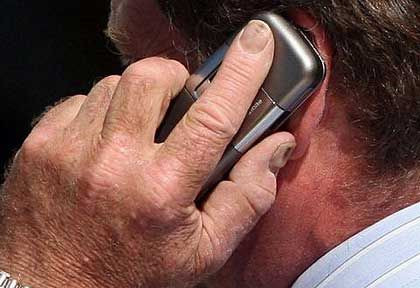Cell Phones Already Deemed Safe; San Francisco Lawmakers Drop Fight For Radiation Right-To-Know Ordinance

While the possible dangers of cell phone use have been established, San Francisco law makers are dropping their fight to force retailers to warn consumers about the negative effects of cell phone radiation.
In 2011, The Board of Supervisors of San Francisco passed the legislation, Cell Phone Right-To-Know Ordinance, forcing vendors to inform potential customers about every individual phone's radiation emission levels. This was met with a federal appeal from Cellular Telecommunications and Internet Association, which represents major cell phone carriers and manufacturers, including Verizon Wireless, AT&T, Samsung, and Apple, because the law violated first amendment rights.
The International Agency for Research on Cancer, a component of the World Health Organization, has deemed the radiofrequency fields emitted by cell phones to be "possibly carcinogenic to humans." But this claim is based on limited evidence. A 2011 study implicated increased cell growth in the brain after 50 minutes of cell phone radiofrequency exposure, but the growth led to neither tumors nor cancers. Similarly, cell phone radiation was found to cause DNA damage to human sperm in a popular 2009 study. DNA damage leads primarily to birth defects, but not necessarily cancer or any other disease that will affect the person using the cell phone.
Supervisor David Campos of the Board of Supervisors states that he feels the law would be an important one to pass because it ensures the health and safety of consumers, who have every right to know the dangers of their devices. However, the major reason why San Francisco lawmakers will not push back is because of potential legal fees.
"It's a very tough situation, but the last thing I want is to have the general fund give half a million dollars to lawyers in this case," said Campos.
On Campos's side is a non-profit research organization, The Environmental Working Group. "If the nation's experience with tobacco taught us anything, it is that it is dangerous to wait until there is scientific consensus about a potential health threat before providing consumers with information on how they can protect themselves," said Renee Sharp, the group's research director.
New phones are tested by these organizations for their safety before they are released to the public. The Food and Drug Administration and the Federal Communications Commission (FCC) have found no consistent link between health risks and cell phone use, and still consider all of the cell phones legally sold in the United States to be safe for use. After this potential attack by San Francisco lawmakers on the efficiency of government organizations, the FCC intends to revise its safety guidelines for cell phones so that they can be tested in a number of other situations for potential long-term health hazards.
The organizations in charge of lawmaking and threat identification have it under control without lawmakers trying to infringe upon the freedoms of Americans under the guise of protecting them from harm. However, there is some merit in preventing the instance of serious health issues in the world's population.
Published by Medicaldaily.com



























